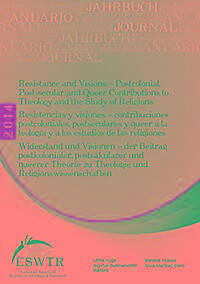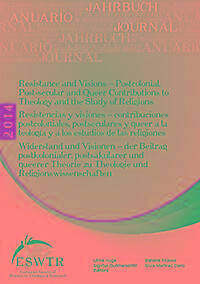
- Afhalen na 1 uur in een winkel met voorraad
- Gratis thuislevering in België vanaf € 30
- Ruim aanbod met 7 miljoen producten
- Afhalen na 1 uur in een winkel met voorraad
- Gratis thuislevering in België vanaf € 30
- Ruim aanbod met 7 miljoen producten
Zoeken
Resistance and Visions: Postcolonial, Post-secular and Queer Contributions to Theology and the Study of Religions
€ 45,00
+ 90 punten
Omschrijving
Under today's conditions of globalization and neoliberalism with the consequent commodification of the whole life, poverty, (hetero-)sexism, homophobia, racism, fundamentalism and nationalism (including right-wing extremism) are producing violent exclusions instead of inclusive ideas of community, solidarity, and justice. What answers can the theological perspectives of different religions offer to decrease economic and epistemic violence? Especially liberationist, intersectional, feminist, and gender-sensitive approaches have proven to be very conscious of these issues and have contributed immensely to their analysis in theology and religious studies. More recently, postcolonial, post-secular and queer theories have furthered the critical debates in cultural and social analysis and enriched previous approaches. Whereas often only one of these theoretical approaches is used to frame the analysis, the papers collected in this volume show the surplus of the synergy when all three approaches are used together in the analysis of situations of violence, to develop forms of resistance, and imagine societies of solidarity and justice.
Specificaties
Betrokkenen
- Uitgeverij:
Inhoud
- Aantal bladzijden:
- 226
- Taal:
- Nederlands
- Reeks:
- Reeksnummer:
- nr. 22
Eigenschappen
- Productcode (EAN):
- 9789042931732
- Verschijningsdatum:
- 17/11/2014
- Uitvoering:
- Paperback
- Formaat:
- Trade paperback (VS)
- Afmetingen:
- 142 mm x 208 mm
- Gewicht:
- 317 g

Alleen bij Standaard Boekhandel
+ 90 punten op je klantenkaart van Standaard Boekhandel
Beoordelingen
We publiceren alleen reviews die voldoen aan de voorwaarden voor reviews. Bekijk onze voorwaarden voor reviews.










